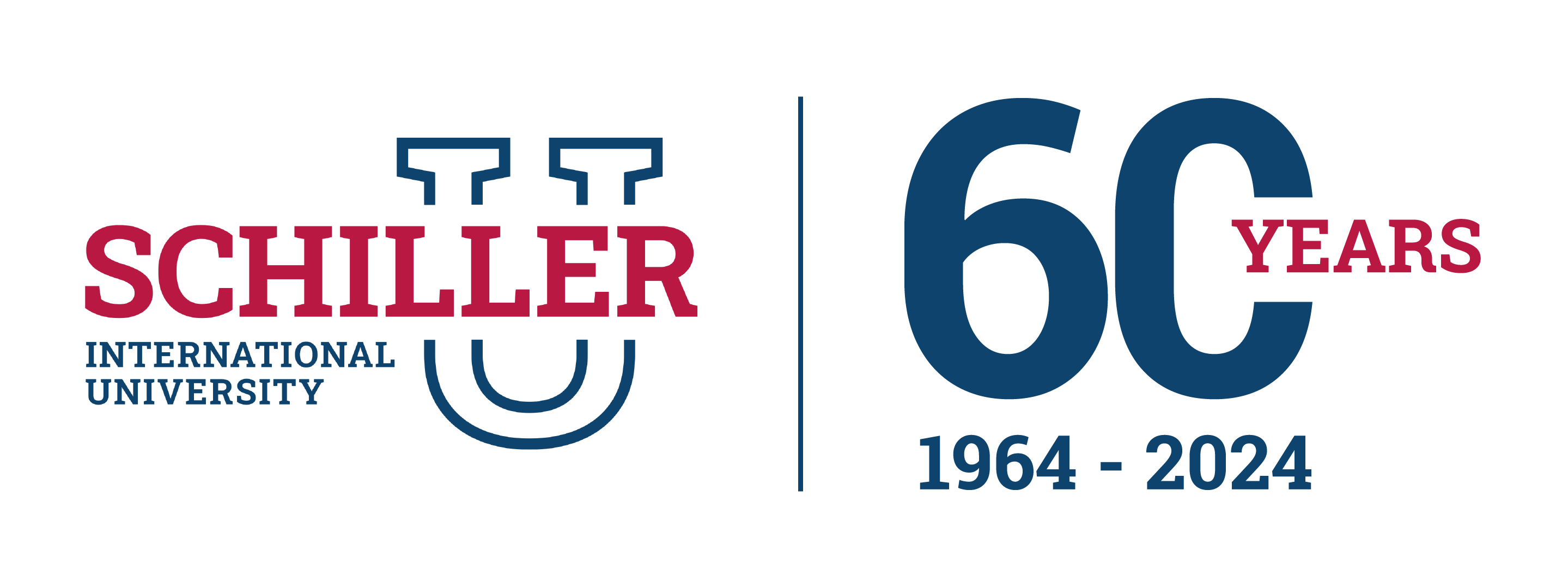Over the past two months, Schiller International University had the pleasure to host three Global Talks about current major international crises like Ukraine and the Middle East, thereby confirming its leading position in the discipline of International Relations & Diplomacy.
On 11 January 2023, a Global Talk was organized on the theme “How to End the War in Ukraine in a Multipolar Era”. The event gathered former Ambassadors Costas Miltiades and Zlatko Bars-Dimitroff, both instructors in Diplomacy at Schiller, for an exceptional exchange with students. A first aim was to try and make sense of why the war happened in the first place and what are some of the explanations that brought the world to 24 February 2022. The post-World War II global security regime and the rules-based international order enshrined in various UN-backed treaties seem to be under threat today. This war stands as an example of tragic human cost with tens of thousands of casualties. It unleashed Europe’s largest refugee crisis since World War II and has evolved into a humanitarian crisis that provoked global food and energy insecurity. This war raises questions about international security in general, and European security in particular. With his invasion of Ukraine, Vladimir Putin has unleashed a new disorder on the world and raised the stakes.
At this juncture, the conflict is far from over. The possibility that things will get worse before they get any better is real. Neither Kyiv nor Moscow shows an appetite for peace talks, each believing that it can prevail in the battlefield. As there have not been serious attempts to end the war, it is high time to search for options to implement a cease-fire agreement and start negotiations for a durable and sustainable solution. In an effort to understand and explore the different outcomes of the ongoing crisis and, if possible, eventually reach agreed solution(s), the second part of the discussion focused on a number of critical aspects. International peace and security, including the possibility of further escalation, was at the heart of the exchange. To see if a diplomatic solution is possible, previous negotiation episodes between the Russian Federation and Ukraine and their results were reviewed. Besides, key state and non-state actors’ contributions were analyzed with a view to assessing if certain venues, such as the UN or the OSCE, could provide a way forward to peace. With the apparent return of great power politics, the role of major powers in reaching a resolution to the different aspects of the crisis was eventually explored.
On 8 and 16 December 2022, two other Global Talks were held on the topics “The New Middle East and Great Power Competition” and “State Accompli: The Political Consolidation of the Islamic State Prior to the Caliphate”. During the first of these talks, Dr. Jean-Loup Samaan, Senior Research Fellow at the Middle East Institute of the National University of Singapore and Schiller Advisory Board Member for International Relations & Diplomacy, explained how the world returned in earnest to the logic of the so-called great power competition. That competition is taking place between the U.S., China, Russia and if it focuses on two main hot spots – Ukraine in Europe and Taiwan in East Asia. The policies of Washington, Beijing, and Moscow have ramifications in all the other regions of the world – the Middle East being no exception. Yet the return of great power competition after the post-Cold War lull does not mean that regions like the Middle East are solely defined by that global phenomenon. In the past decade, the rise of the U.S.-China rivalry coincided with the growing ambitions of Middle Eastern powers – Turkey, Israel, Saudi Arabia, Qatar, or the UAE – to dictate the terms of their own foreign policies. Therefore, this great power matrix is misleading, as it dismisses the agency of local actors. Middle East states are seeking more and more not to align themselves along the lines of great power competition, but rather want to use the competition for leverage to satisfy their interests. Against that backdrop, the discussion helped unpack the major trends in the Middle East security environment and venture on the future outlook of the region.
The second talk hosted Dr. Craig Whiteside, Professor at the U.S. Naval War College resident program at the Naval Postgraduate School in California to examine and discuss the consolidation of the Islamic State movement within the Sunni insurgency in Iraq from 2003 to 2014, relying on insurgent media releases, captured documents, and a declassified U.S. military study to evaluate this group’s complex relationship with its armed rivals. The discussion allowed to emphasize several conclusions about the Islamic State, which moved through sequential stages of cooperative, competitive, and coercive consolidation to achieve hegemony in the insurgent field. Each phase of transition entailed organizational changes, including mergers, re-branding, and new structures. The movement’s ideology and state-building project distinguished it from peers whose political agendas were too diffuse to establish lasting coalitions. The tribal Awakening that worked with the Americans to temporarily defeat the group also badly splintered its rivals and failed to prevent the revitalization of the jihadist movement, setting the foundation for its short-lived caliphate project.
These Global Talks were convened and moderated by Dr. Myriam Benraad, Schiller’s Global Academic Chair for International Relations & Diplomacy.

 Apply Now
Apply Now








